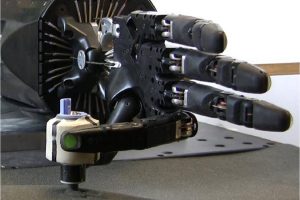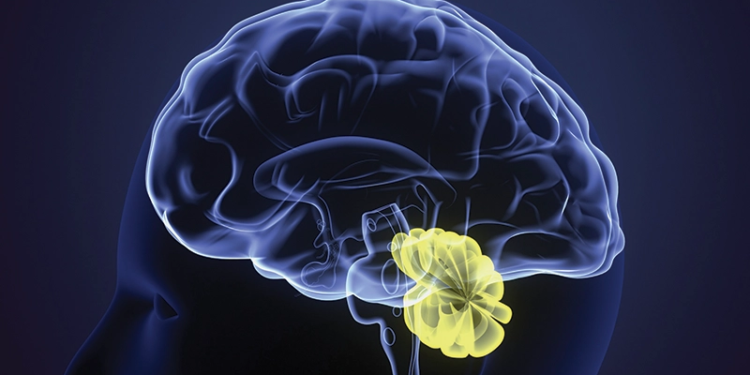Researchers from the Florida Atlantic University (FAU) College of Engineering and Computer Science received a four-year, $1.2 million grant from the National Science Foundation to improve control of prosthetic hands. The project involves a novel bimodal skin sensor that combines machine learning motor intention classification algorithms and reinforcement learning. Clinicians will interact with ten study participants over the course of a year for muscle training using a smartphone.

“Anything exceeding basic functionality remains elusive for prosthetic hands even though they are mechanically capable of such feats,” said Erik Engeberg, PhD, principal investigator and a professor in FAU’s Department of Ocean and Mechanical Engineering. “One major bottleneck limiting more sophisticated functionality is the lack of an intuitive biosignal classification method that can reliably interpret hand motor intent as well as people can do for a broad range of tasks. This is no simple feat.”
The research team will explore methods to help people learn advanced control of sophisticated prosthetic hands with this automated training regimen that can be used at home.
“Automating this aspect of healthcare with remote learning functionality can help disabled people access treatment more quickly, more conveniently and at a lower cost,” said Engeberg.
Currently, wrist flexor muscles are used to close the prosthetic hand and the extensor muscles open it, and the user must then toggle between different grasp types. Although there are numerous options for dexterous wearable co-robot assistants, such as prosthetic hands, the dexterity of these devices is rapidly outpacing the ability for people to intuitively control them.
One main source of this problem stems from the inability to reliably interpret the intentions of the human operator over the course of months and years. Another problem is that the science behind customizable training programs to empower disabled people to harness the full potential of prosthetic hands has not been deeply explored.
“This non-intuitive functionality is why many amputees reject using artificial limbs, which is unfortunate because of the negative collateral effects at work and for pleasure, which drastically impact their quality of life,” said Engeberg. “The current clinical state-of-the-art has a minimal level of dexterous controllability; overcoming this problem is the goal of our research.”
The researchers will 3D scan the participants’ residual limbs to fabricate form-fitting prosthetic sockets that are adaptable to anticipated changes in residual limb musculature over the course of the program. They will develop a novel bimodal robotic skin to sense biocontrol signals in the residual limbs that will be integrated within the customized prosthetic sockets to overcome limitations with current sensing technology and train the classification algorithms using data gathered from in-home experiments performed over the year.
The technology also will provide the research team with the ability to monitor the patients’ usage data from remote locations, which has broad applications to connect disabled people located around the world with specially trained clinical teams.
“Losing an upper limb has a devastating impact on the ability to perform common daily activities,” said Stella Batalama, PhD, the dean of the College of Engineering and Computer Science. “The uniquely holistic approach developed by professor Engeberg and his colleagues to transform the state-of-the-art for dexterous control of prosthetic hands could break through previously insurmountable barriers.”
Research from the grant will also be used to create learning experiences for high school students from low-income households to help educate the next generation of engineers and scientists.
Editor’s note: This story was adapted from materials provided by Florida Atlantic University.




